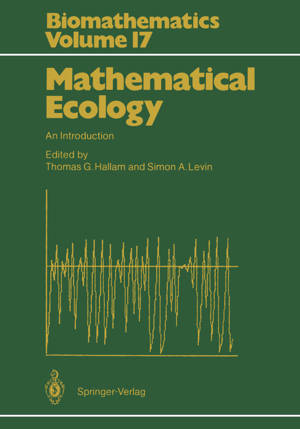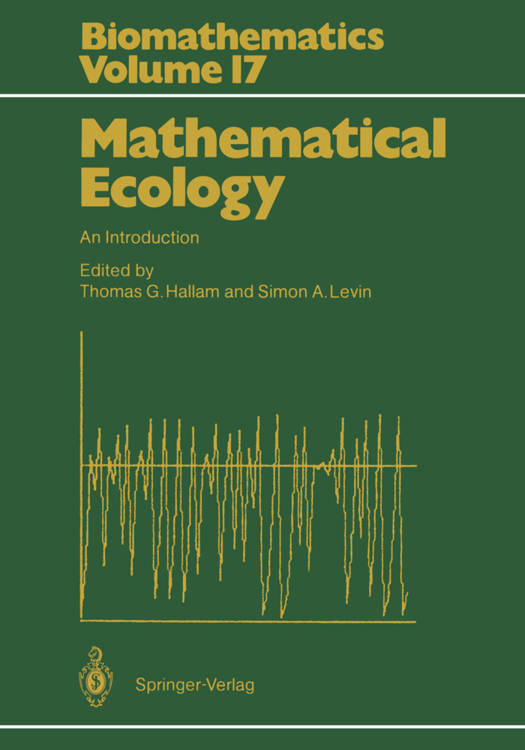
Bedankt voor het vertrouwen het afgelopen jaar! Om jou te bedanken bieden we GRATIS verzending (in België) aan op alles gedurende de hele maand januari.
- Afhalen na 1 uur in een winkel met voorraad
- In januari gratis thuislevering in België
- Ruim aanbod met 7 miljoen producten
Bedankt voor het vertrouwen het afgelopen jaar! Om jou te bedanken bieden we GRATIS verzending (in België) aan op alles gedurende de hele maand januari.
- Afhalen na 1 uur in een winkel met voorraad
- In januari gratis thuislevering in België
- Ruim aanbod met 7 miljoen producten
Zoeken
€ 83,95
+ 167 punten
Omschrijving
There isprobably no more appropriate location to hold a course on mathematical ecology than Italy, the countryofVito Volterra, a founding father ofthe subject. The Trieste 1982Autumn Course on Mathematical Ecology consisted of four weeksofvery concentrated scholasticism and aestheticism. The first weeks were devoted to fundamentals and principles ofmathematicalecology.A nucleusofthe material from the lectures presented during this period constitutes this book. The final week and a half of the Course was apportioned to the Trieste Research Conference on Mathematical Ecology whose proceedings have been published as Volume 54, Lecture Notes in Biomathematics, Springer-Verlag. The objectivesofthe first portionofthe course wereambitious and, probably, unattainable. Basic principles of the areas of physiological, population, com- munitY, and ecosystem ecology that have solid ecological and mathematical foundations were to be presented. Classical terminology was to be introduced, important fundamental topics were to be developed, some past and some current problems of interest were to be presented, and directions for possible research were to be provided. Due to time constraints, the coverage could not be encyclopedic;many areas covered already have merited treatises of book length. Consequently, preliminary foundation material was covered in some detail, but subject overviewsand area syntheseswerepresented when research frontiers were being discussed. These lecture notes reflect this course philosophy.
Specificaties
Betrokkenen
- Uitgeverij:
Inhoud
- Aantal bladzijden:
- 460
- Taal:
- Engels
- Reeks:
- Reeksnummer:
- nr. 17
Eigenschappen
- Productcode (EAN):
- 9783642698903
- Verschijningsdatum:
- 8/12/2011
- Uitvoering:
- Paperback
- Formaat:
- Trade paperback (VS)
- Afmetingen:
- 170 mm x 244 mm
- Gewicht:
- 752 g

Alleen bij Standaard Boekhandel
+ 167 punten op je klantenkaart van Standaard Boekhandel
Beoordelingen
We publiceren alleen reviews die voldoen aan de voorwaarden voor reviews. Bekijk onze voorwaarden voor reviews.








